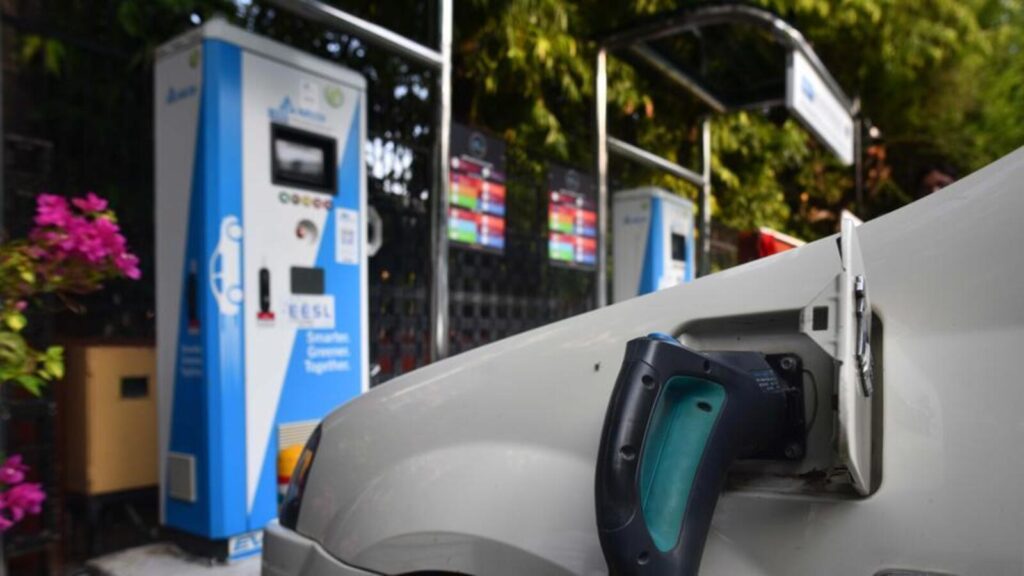Policy tweak may raise cost of owning non-EVs | Latest News Delhi

The Delhi government has proposed a significant tweak to its existing electric vehicle (EV) policy, which may lead to an increase in the cost of petrol and CNG vehicles, people aware of the plan said on Wednesday.

The policy tweak, the people said, will lead to the extending of an existing “green cess” — currently applicable only for diesel vehicles —to all internal combustion engine (ICE) vehicles, thereby increasing their cost. This, they said, is being proposed in order to disincentive the sale of petrol and CNG vehicles in the Capital.
Another option that is being explored is hiking the cost of petrol and CNG in the city, they said.
Delhi’s EV Policy 2020 — which charges a cess of 1% on diesel vehicles — expired in August 2023, and has been extended ever since.
Transport department officials said that the state is likely to introduce a revised policy within a month, in which it proposes a tax of 1-2% on new petrol and CNG vehicles in the Capital, along with subsidies and interest subvention schemes for EVs.
A senior transport official said the cabinet will take a final call on approving the increased cess.
As per data from the government VAHAN portal, 12-14% of vehicles registered in Delhi every month are EVs. However, this number drops significantly to only around 4% when it comes to private cars, and officials said the additional cess may help in improving EV adoption.
“There are multiple targets and incentives, both fiscal and non-fiscal, aimed at discouraging people from buying traditional fuel-based vehicles and moving towards cleaner EVs. This is one such fiscal proposal aimed at adding a sort of additional tax for buying new petrol, diesel and even CNG vehicles,” said the official.
Overall, officials said, the policy aims to ensure that by 2027, 95% of all new vehicles registered in Delhi are EVs.
In addition to the green cess, the policy has also proposed subsidies and interest subvention schemes for loans for the purchase of EVs.
Other financial benefits proposed in the policy include a scrapping incentive, a replacement incentive, retrofitting funds, risk sharing facilities, purchase incentive on charging infrastructure, and battery swapping facilities, among others.
A total budget outlay of around ₹2,400 crore has been proposed for these benefits, distributed over a period of three years.
Officials said the government may alternatively include a cess of ₹0.50 per litre may be imposed on petrol and CNG, and of ₹1 per litre on diesel. It has also been proposed that for all vehicles older than 10 years, a green levy of ₹2,000 on two-wheelers and ₹ 10,000 on four-wheelers will be imposed at the time of PUC testing.
For commercial vehicles older than 10 years, the levy will be ₹10,000 at the time of fitness test. The department has estimated revenue collection of approximately ₹300 crore every year from these taxes that will be used towards increasing EV uptake, officials said.
The policy also aims at gradually phasing out all CNG autos by not extending permits or allowing auto owners to switch to electric.
“Experts have suggested that the benefits gained initially from the switch to CNG have now been lost due to increasing pollution levels. We have proposed that new CNG autos will not be registered now and all CNG autos older than 10 years will mandatorily be replaced or retrofitted as electric autos,” said a transport department official.
Experts, meanwhile, said that the biggest deterrent to EV adoption remains the high upfront cost, compared to ICE vehicles, and said that more stringent measures need to be taken by introducing direct mandates.
“While a green cess can discourage ICE vehicle purchases to some extent, a 1-2% increase may not have a significant impact on sales. A more effective approach would have been a direct sales mandate for EVs. A sales mandate would ensure a structured and measurable transition to electric mobility by setting clear targets for automakers, creating a stronger push toward EV adoption rather than relying solely on financial disincentives,” International Council of Clean Transport managing director (India) Amit Bhatt said.




